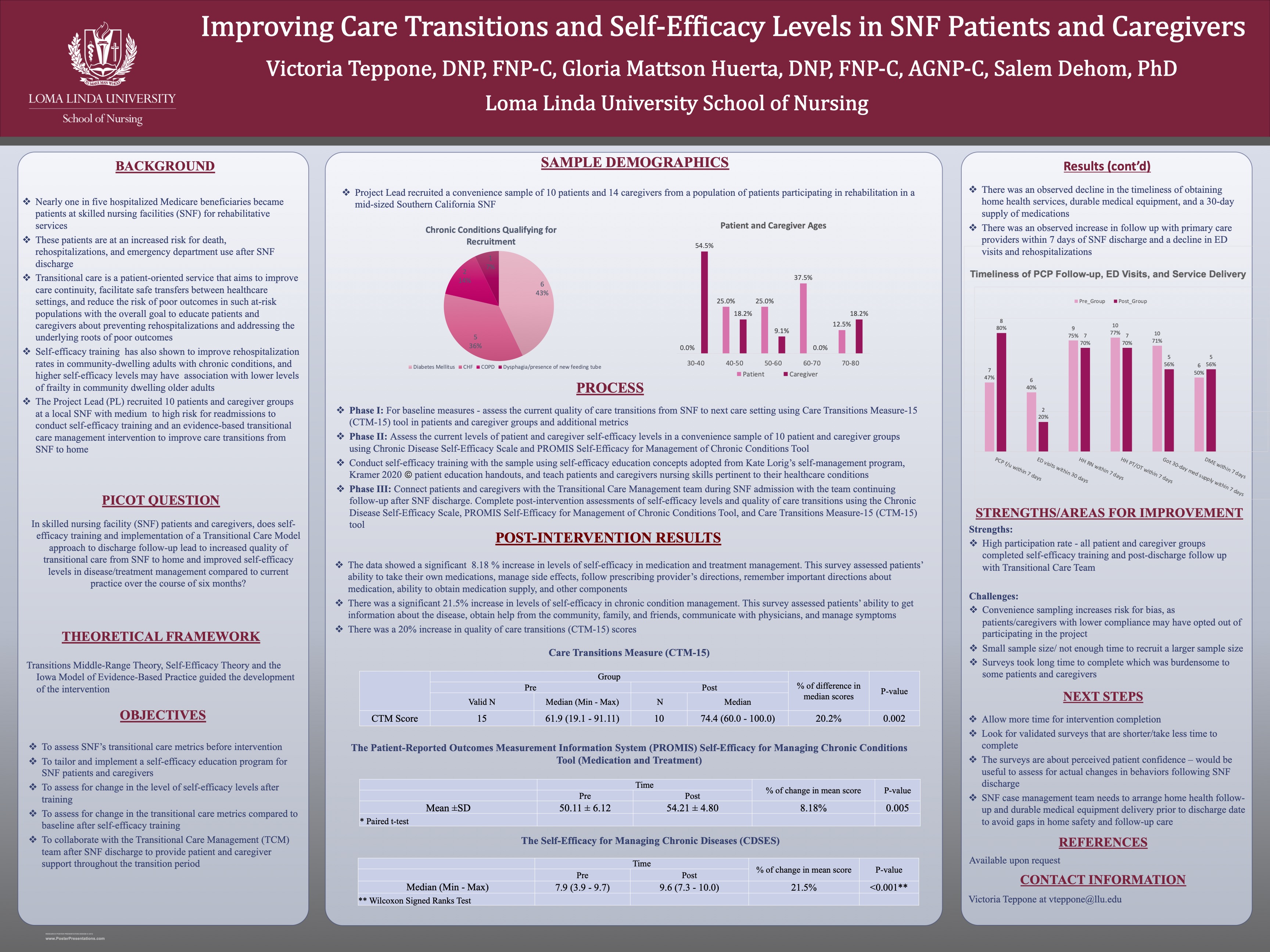Improving Care Transitions and Self-Efficacy for Skilled Nursing Facility Patients and Caregivers
Purpose: To evaluate the effects of evidence-based transitional care intervention and self-efficacy training for skilled nursing facility (SNF) patients and caregivers.
Background: Effective transitional care interventions for skilled nursing facility (SNF) patients continue to be a challenge. Overwhelmed patients and caregivers often lack the necessary skills and direction in chronic condition management upon discharge to home. These factors may lead to preventable acute care episodes and increased distress during care transitions.
Methods: This quality improvement project consisted of adopting an evidence-based self-efficacy training program and collaborating with an existing transitional care team to continue patient follow-up in the immediate post-discharge period. The intervention took place over six months and utilized quantitative pre and post-data.
Outcomes: There was a significant increase in patient and caregiver self-efficacy levels and quality of care transition survey scores. As part of the intervention, patients were assisted in scheduling primary care appointments, hence patient follow-up with primary care providers increased, while the ED visits decreased during the first 30 days after SNF discharge.
Conclusion: Self-efficacy training may play a role in improving the quality of care transitions. SNF leadership is to prioritize self-efficacy training and transitional care follow-up for patients transitioning back into the community. SNF Providers and nurses are uniquely positioned to champion these interventions in the SNF setting and can guide patients and caregivers during clinical encounters in anticipation of care transitions.

Click here to view full poster.
Authors:
Victoria Teppone, DNP, MSN, FNP-CMattson Huerta, DNP, FNP-C, AGNP-CSalem Dehom, PhD
